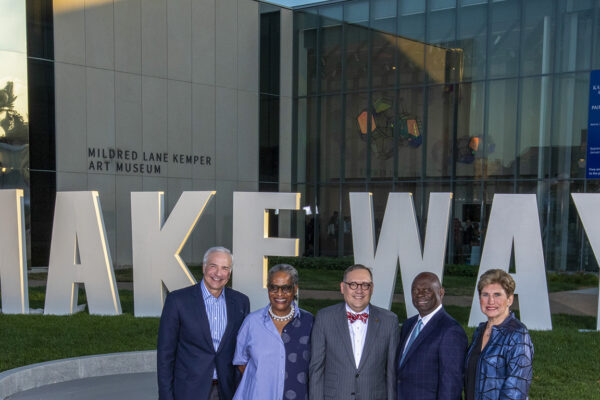In September, Washington University in St. Louis began using a new admissions system for most of its doctoral, master’s and professional programs. The launch of Slate, which is also the system used by undergraduate admissions, is part of Student Sunrise, a multiyear initiative to consolidate and update the university’s various student information systems, while reimagining processes, policies and structures that support academic and student operations.
September marked the first of two phases of the Slate rollout, which will consolidate and unify many of our graduate admissions systems and related processes, ultimately reducing the number of graduate admissions systems at WashU from 23 to 15.
“Many of our peer institutions have consolidated to fewer graduate admissions system and have noted improvements in their ability to assess key information, in addition to having a system that is easier to use and support,” said Erin Culbreth, associate provost and executive director of Student Sunrise. “The alignment of systems will help us improve access to the data needed to support university strategic goals in this area.”
The transition to Slate also is expected to create a smoother process for applicants, reduce manual work for staff and simplify integrations with Workday Student, which will go live in stages throughout the 2024-25 academic year, replacing 83 of the information systems that currently support registration, advising, degree audit, grading and many other academic processes.
Design of Workday Student halfway complete
For the past year, the project team, in collaboration with more than 100 colleagues across the Danforth and Medical campuses, has been partnering directly with Workday to design and configure the new student system. The team also is working with the project’s steering committee and school IT leaders to begin to understand what is changing and what these changes mean for each school. Wins are expected in number of areas:
- Reduction in manual processes, particularly in the areas of degree audit, management of co-requisites and prerequisites, and tuition assignment.
- Consolidation of advising systems will provide a 360-degree view of a student’s academic progress, giving advisers better information to support their students.
- Greater consistency in grading scales and types will address issues with grading equity, particularly for undergraduates.
- Standardized course numbering will help students better locate not only the courses they need, but also help groups like the Campus Store better organize books and other resources needed by class.
“These are just a few of the anticipated wins,” said Beverly Wendland, provost and executive sponsor of Student Sunrise. “But like all implementations, we will not get everything we want or need right out of the gate. Some functionality will come over time, which we knew when we signed up with Workday.
“It will also take some time for the university community to adapt to the new system and realize the full benefits. We are committed to supporting our faculty, staff and students through this transition with helpful information, training and tools.”
System design and configuration will continue throughout the 2022-23 academic year. To learn more about anticipated changes in these areas, the project has expanded its website to provide more details about each of the functional areas and changes anticipated to date.
Faculty, communications advisory groups launch, student group planned
To advise on how to best engage and support faculty during this transition, the Student Sunrise project formed a faculty advisory group. Vice Provost of Interdisciplinary Initiatives Mary McKay, who serves on the Sunrise executive committee, and Danielle Bristow, change lead for the project, co-chair the group. A similar advisory group comprised of undergraduate and graduate students is planned for later in the implementation.
The project also launched a communications advisory group, comprised of representatives from impacted schools and units, as well as University Marketing & Communications, to help leverage communications channels and networks unique to each school.
Learn more and sign up for Sunrise Spotlight, the project’s newsletter, by visiting https://sunrise.wustl.edu/news/.



Comments and respectful dialogue are encouraged, but content will be moderated. Please, no personal attacks, obscenity or profanity, selling of commercial products, or endorsements of political candidates or positions. We reserve the right to remove any inappropriate comments. We also cannot address individual medical concerns or provide medical advice in this forum.